SPOILER WARNING: Several of the memories shared here may spoil small or large moments of their respective games, so read beyond the titles at your own risk.
Star Wars: Knights of the Old Republic – Darth Revan Twist
By James Turner
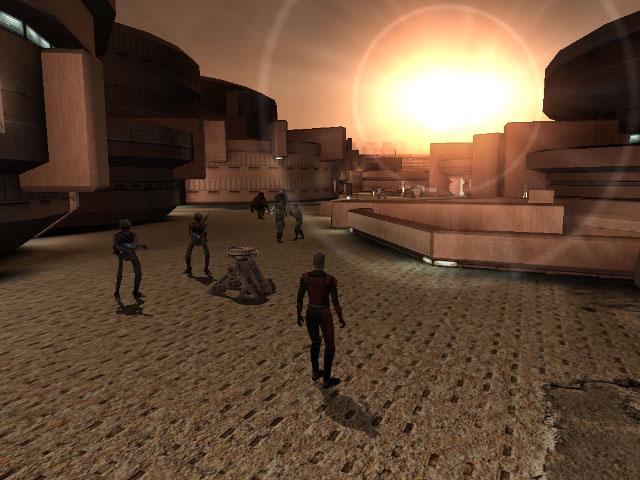
I met my wife in 2005, who just happened to be an Xbox owner. Up until that point, I was a PlayStation fanboy through and through. One afternoon we were looking for a new game to play, and a memory of an Xbox game I had seen in my friend’s house flashed in my head. The game was Star Wars: Knights of the Old Republic. I returned home with the borrowed copy that evening, and the next few days were a blur. We were both instantly hooked.
KotOR was a game of firsts for both of us. It was my first Xbox game, and our first Western RPG. The ability to choose a light or dark side path made the game’s story more engaging and meaningful, and no RPG twist before or since has impacted me quite like the reveal of Darth Revan’s identity.
Throughout the story, you learn about Revan’s past and betrayal by the game’s main villain Darth Malak. Revan is an enigma, and I needed to learn all I could about O.G. Sith Lord. When our party finally came face to face with Malak, I was blown away by the reveal of Revan’s true identity. In a twist that would make M. Night Shyamalan proud: it was us! Knights of the Old Republic took the amnesiac protagonist trope and turned it upside down. The Jedi wiped your character’s memory to use you to lead them to Darth Malak. Oh, you Jedi and your questionable morals. This moment opened my eyes to how impactful RPG storytelling can be when done right. Sorry for the spoiler, but it has been 20 years. What is the statute of limitations on plot reveals?
Suikoden II – 108 Stars of Destiny Duel Outcome
By Audra Bowling
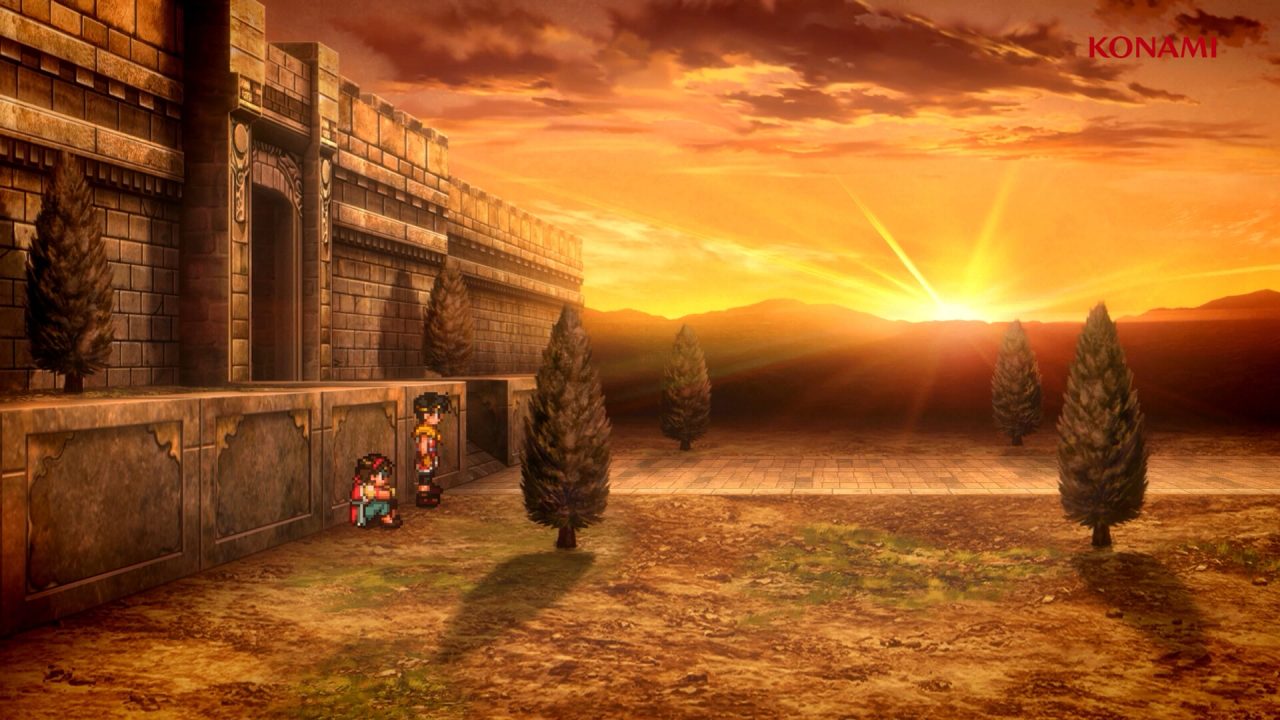
Suikoden II is the first RPG I bought using my own money. I remember being drawn to its cover, intrigued by the idea of recruiting a massive cast of characters. My sister and I played together, and we have fond memories of huddling over a printed-out FAQ list, dutifully marking each new Star of Destiny recruit, and desperately trying to save Nanami when the appointed time came but having no clue if we were successful.
I remember Suikoden II’s final scenes before Riou’s fated duel with Jowy. We fought intending to win on our first attempt, and the ending broke our hearts. Then we decided to approach the fight differently, thinking about it from Riou’s perspective. He’d lost his sister and endured so much, only now to go against his friend-turned-adversary despite knowing that Jowy wasn’t a bad person. The game makes it obvious that they still care about each other. So, we decided to see what would happen if Riou didn’t want to fight his friend anymore.
By defending the entire duel, all of our efforts throughout the game’s playtime paid off (like saving Nanami, or recruiting all 108 Stars of Destiny). At the time, we had no idea the outcome would be so different. As those final ending scenes played, I remember simply being elated. This ending resulted from earlier in-game actions, through the choice not to strike back even when Jowy implored us to. It was the first time my actions in a game culminated in a different outcome. The interactive narrative floored me. This moment impressed upon me how much impact RPGs can have as a storytelling medium.
Tales of Eternia – One-Shotting the Game in a Freezing House
By Wes Iliff
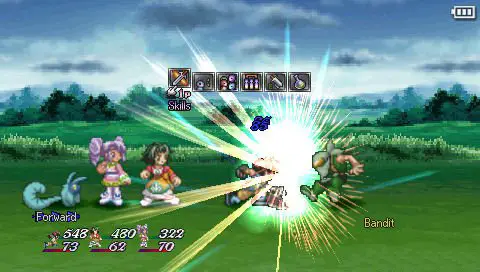
Tales of Eternia (or Tales of Destiny II, as it was named in its initial Western release) was a formative game for me. It solidified the Tales series as the definitive multiplayer RPG. I’d owned the game for a hot minute, but never made it super far. That is, until my mom went out of town, leaving me with the house to myself for a weekend, and my friend Chris came over to try out the multiplayer in this RPG I was trying to play.
We latched onto the game almost immediately. Those first moments of the RPG that played like a fighting game were unlike anything we’d played before. As we both were RPG aficionados and loved beating multiplayer games together, we’d stay up late and see how far we could get. And for a while, we blazed through it together, having an absolute blast as the magic system opened up and more characters joined our crew.
That was when the furnace went out.
See, we lived in Iowa, and it was wintertime. The furnace going out meant we could see our breath in front of us. But the game was so good! We each wrapped up in a couple of blankets and declared sleep for the weak, staying up all night and eventually beating the entire game in, essentially, one sitting.
It wasn’t until we brought the experience to two more friends that we realized how much we’d missed. Did you know the air travel vehicle in Tales of Eternia is optional? Well, we sure learned it! But none of that takes away from the memory of a friend and I so enamored with a game that we decided neither biting cold nor lack of sleep could get in the way.
Thousand Arms – Nelsha vs. Ratchet
By Neal Chandran
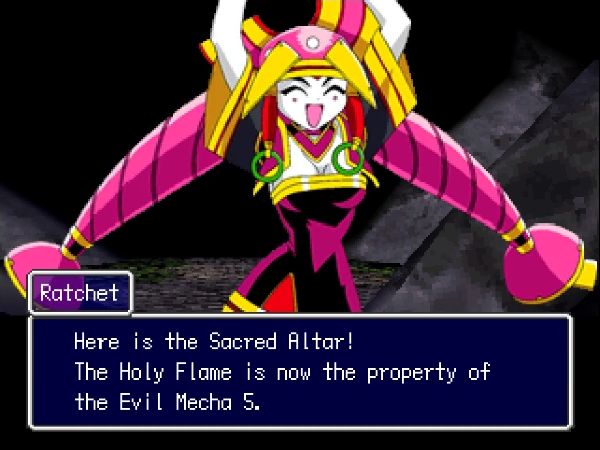
I was a college student when I first played Thousand Arms. It was a simpler time when Internet shorthand slang terms like ROFL weren’t as commonplace in our vernacular. I actually needed one of my more Internet-savvy friends to explain several of these acronyms — including ROFL — to me. I’m glad my friend told me, because soon after I learned the meaning of ROFL, a video game literally had me rolling on the floor laughing!
Thousand Arms had several comedic moments, but one that still makes me laugh like a hyena is an exchange between Nelsha (whose form and personality change depending on her attire) and Ratchet (an adorably evil villain with a strong New York accent). It’s a literal insult war between the two ladies, with one barely bleeped-out f-bomb from Nelsha that had me squealing so hard my dorm mates opened my door, wondering what in the world was going on. The looks on their faces when they saw me rolling on the floor, laughing my head off, were priceless.
There are other funny Thousand Arms college moments I could talk about as well, such as when my dorm mate’s girlfriend was watching him play the game (we shared a copy) and wanted to try it. She had never seen a video game with dating sim elements before and giddily chose all the “bad” responses in a date scene just to see what would happen. Of course, we all ended up laughing at the hilarious dialogue. I wonder what her reaction to the Nelsha vs. Ratchet scene would have been.
Some aspects of Thousand Arms may be problematic in today’s cultural climate, but back in the day, it provided giddy laughter to me, my dorm mates, and even one of their girlfriends. And the Nelsha vs. Ratchet scene that literally made me ROFL is still hilarious today. No other video game has made me laugh as much as Thousand Arms did, and that scene is still the absolute funniest I’ve ever experienced in a video game.
To the Moon – Roll Credits
By Bob Richardson
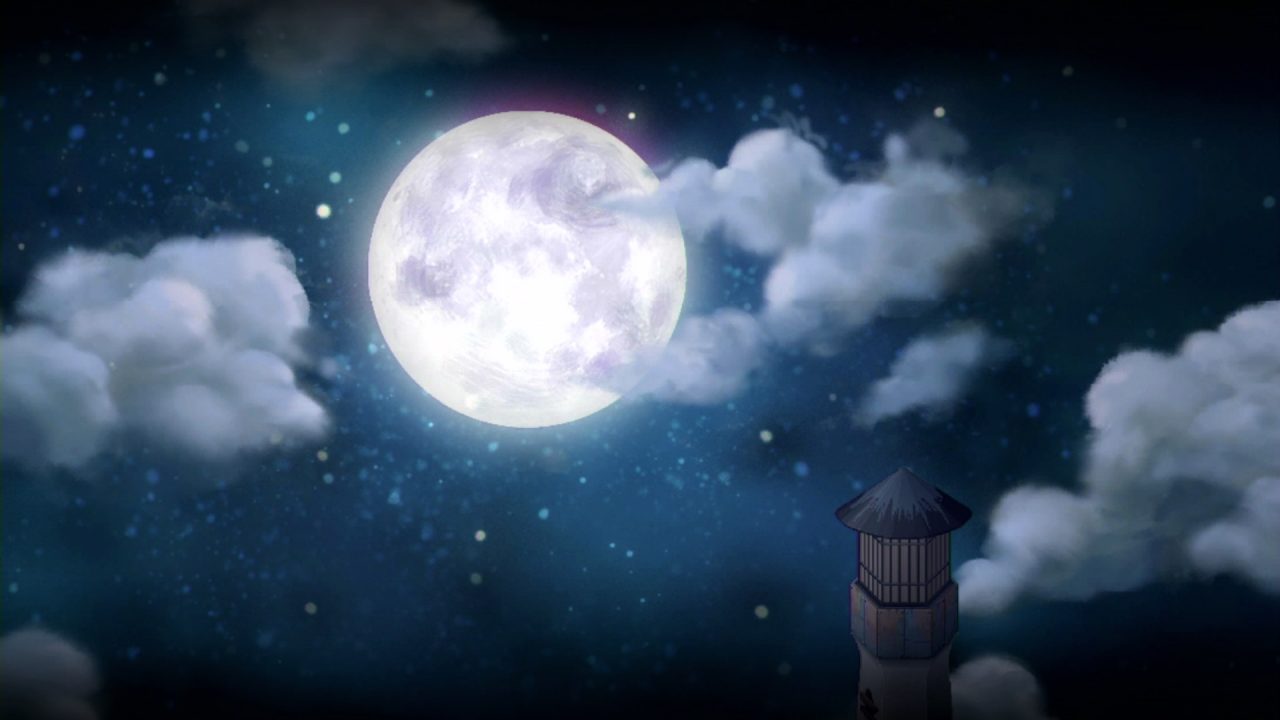
I wept, lump in my throat, face contorted and wet. Johnny was gone, and it wasn’t a successful career he remembered in his final moments. It was River. It was a relationship. A bond. This was 2013, and I was 28 years old. For about ten years, I wrestled with my professional and intellectual ambitions by pursuing a doctorate. Despite my love of knowledge and desire to leave a legacy through research to move us ahead as a civilization, something held me back all those years. I had applied and gotten into excellent schools, but I turned down offers. Yet, I was restless. I still had that stubborn dream of leaving my mark on the world.
What held me back was exactly what To the Moon communicated to me. I had always wanted to raise a family. Children are the most precious thing in this world to me. Johnny had his own demons to battle, but the whole time it was River who completed him. Kan Gao’s work didn’t delve into the concept of work vs. family or ambition vs. romance. It was simply a tale of human connection, and how our relationships with others make us whole. Complete us in such a way that, when given the opportunity to create a memory and leave this world behind, this is what we choose to hold onto.
Of course, I was crying because of the beautiful tale, the timing of the final heartbeat with the gentle pressing of piano keys, and the culmination of everything I had just witnessed in the last four hours. But I also had a dawning realization as I watched those white-lettered names appear and disappear on my black screen. It was an “a-ha.” A sudden realization and moment of enlightenment. When I leave this world behind, it’s not going to be some stuffy research papers I publish that I remember. It’s going to be the people around my bed. Who I fly to the moon with. I’m going to make the world a better place, but it’s not going to be in the form of a piece of knowledge. It’s going to be the love I leave behind. It’s going to be my children.
Undertale – Killing Toriel, or: How I Got Called Out by Flowey for Reloading My Save
By Aleks Franiczek
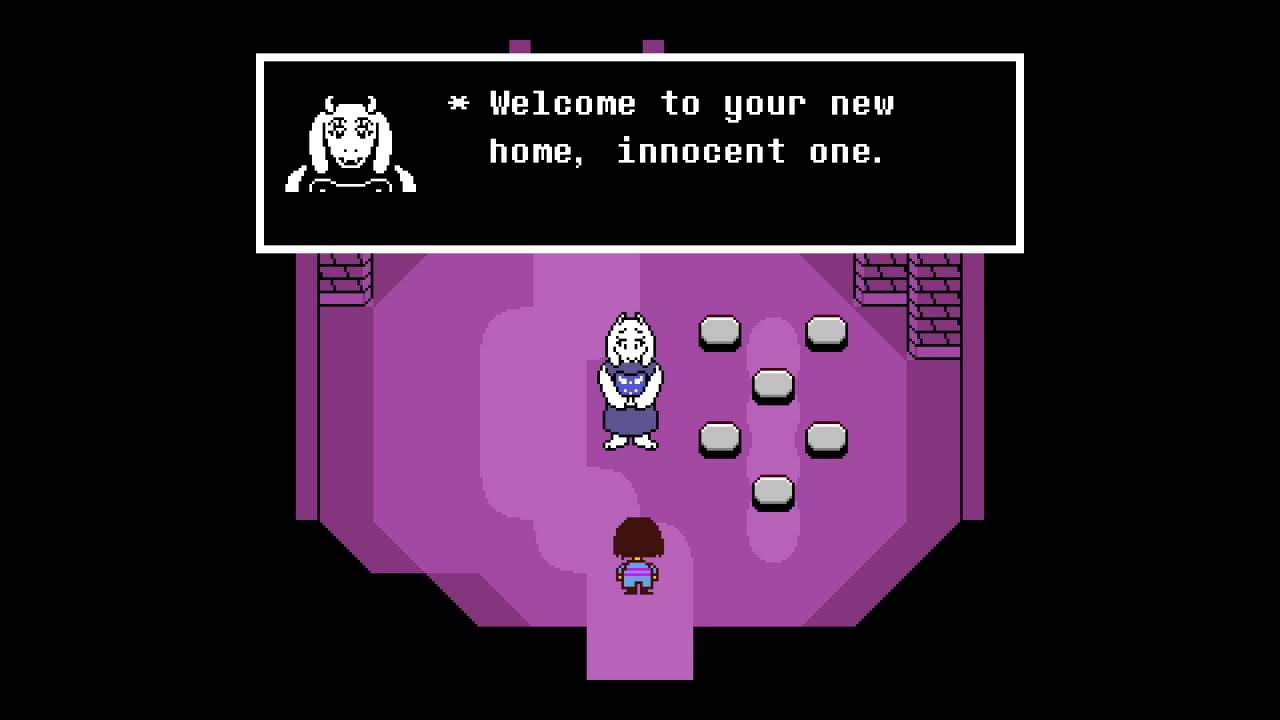
Undertale is a game full of surprises that subvert the conventional ways developers design — and players play — RPGs. There are signs of this from the moment Flowey duped me into “catching” one of his “friendship petals” at the beginning of the game. But it really hit me when that same psychotic flower called me out for murdering my surrogate cow mom, Toriel, and trying to erase the deed with the almighty Load command. Who’s psychotic now?
Creator Toby Fox — and by extension, Undertale — gets that many fans of JRPGs love the genre because of the emotional connections they forge between the player and the games’ supporting characters. I spent the first hour or so of Undertale getting lovingly (and somewhat tediously) pampered by Toriel while learning how to Spare rather than Fight monsters. But when it came to the Toriel battle, the Spare command seemed fruitless. Surely, the game was trying to teach me that choosing Fight is sometimes necessary? I started attacking her again and again, which felt weird as it was my first time actually damaging a monster. Eventually, I fully depleted her health bar, and she fell to one knee. I expected her to begrudgingly let me pass after proving my strength. Instead, she died. My heart dropped a bit. I already knew it was possible to beat the game without killing any monsters. I felt cheated and oddly guilty. I quickly closed the game and loaded my save.
I beat the fight again by adamantly hitting Spare until Toriel finally relented. The process felt artificial, but at least she lived in this new timeline. Pleased enough with the outcome, I pressed forward until quickly running into Flowey again. “I know what you did,” he mocked. “You murdered her. And then you went back, because you regretted it.” It’s the first time I felt personally called out by a game. The mix of guilt towards myself, anger at Flowey, and fascination with this game was unlike anything I’ve experienced playing a video game. I realized what video games could be capable of if they bring the player’s reality closer to the reality of the game (shout out to NieR: Automata’s Ending E).
Xenoblade Chronicles X – Wandering in Wonder
By Izzy Parsons
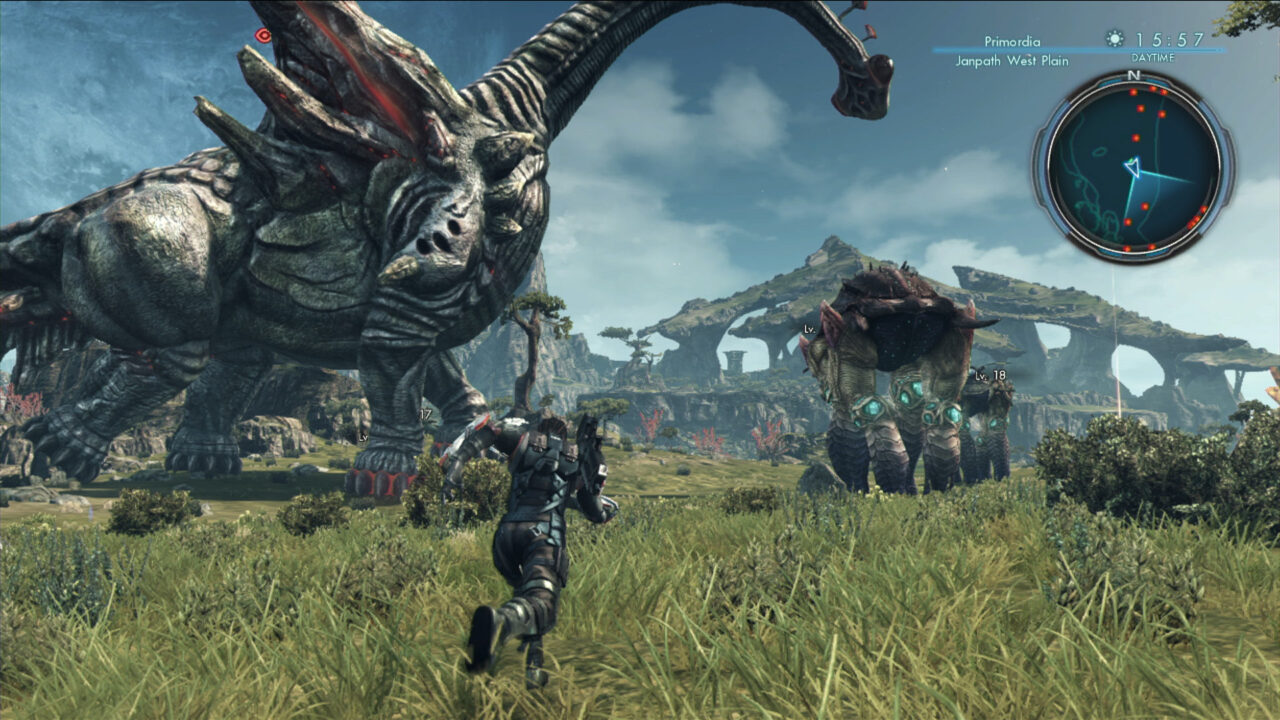
In 2013, my two college roommates and I embarked on Shulk’s quest for revenge in Xenoblade Chronicles. We spent a fantastic May shouting about every discovery and twist across the hall from our bedrooms. So when X, later to be retitled Xenoblade Chronicles X, was announced at E3, we were over the moon. We loved Xenoblade Chronicles, but even more so, we adored mecha.
By the time Xenoblade Chronicles X was released on December 4th, 2015, two of us were much more excited about it than the third, who, at the time, wasn’t interested in an open-world RPG. Luckily, the two of us dying to play it owned Wii Us. That day was a Friday, and we had no classes or work to attend. So first thing in the morning, we walked down to Toys “R” Us and grabbed the game. On our way home, we picked up a disgusting amount of junk food from 7-Eleven because we knew we were in for the long haul.
Once we got home, we dragged an extra TV into the living room, re-arranged the couches for maximum shared gameplay, laid out our array of snacks, and booted up our games. Xenoblade Chronicles X is damned good at dragging the player in, and from our first steps into Primordia, we were both hooked. Wandering the streets of New LA, sneaking through the dangerous and dense jungle of Noctilum, or trudging through the mysterious white sand of Sylvalum only reinforced our sheer joy. Over and over, I saw in my roommate’s eyes the kind of awe you usually only get from standing face-to-face with natural wonders. I knew my expression mirrored his.
Sixteen hours later, our first play session ended with an agreement to get some sleep, but we were both determined to get our Skells that weekend. We were immediately back into the game the next “morning” (early afternoon since we stayed up so late) and did indeed manage to get those Skells that weekend. It was one of my most enjoyable gaming experiences, and I look back upon it fondly whenever I think about the Xeno series.
Yakuza 3 – Losing a Friend in Okinawa
By Michael Sollosi
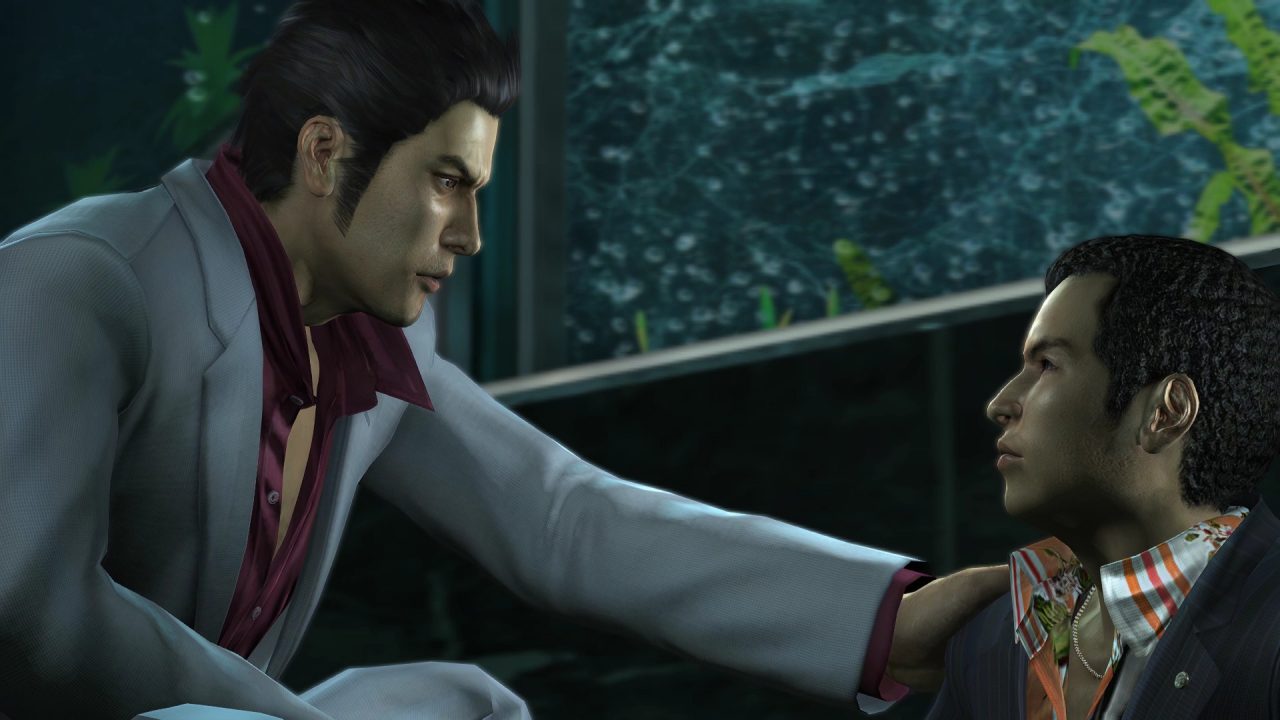
I started playing the Like a Dragon (née Yakuza) series in earnest in April 2020, starting with Yakuza 0. Social distancing measures gave me a lot of extra time to play video games, and I was excited to engage with the decade of crime drama RPGs laid out before me.
Over three years, Yakuza became my personal pandemic escape. Underneath Yakuza’s hyper-violent action and absurd humor, these games are virtual tourism of Japan. They introduce players to fictionalized but faithfully recreated neighborhoods of Tokyo, Osaka, Yokohama, and others, but my favorite was Yakuza 3’s Okinawa.
The subtropical island of Okinawa is beautiful, and feels less intense than other Like a Dragon locales but just as lived-in. Enter Rikiya Shimabukuro, an Okinawan yakuza goon with more enthusiasm than intellect. Our protagonist Kazuma Kiryu meets Rikiya by chance, and Rikiya is so impressed with the retired legend that he immediately attaches himself to Kiryu.
Rikiya is about as endearing as a Japanese gangster can be, with his Kiryu hero-worship, awed reaction to visiting Tokyo for the first time, and a memorable turn posing as Kiryu’s boyfriend. Rikiya seems more human than the impossibly strong and stoic Kiryu, as he’s clumsy and naïve but always a ride-or-die friend, whether he’s fighting gangsters or helping out at the orphanage.
Which is why losing Rikiya is so devastating. Rikiya intercepts a gunshot intended for Kiryu near the end of Yakuza 3 and dies in Kiryu’s arms. Kiryu’s tears and “RIKIYAAAAA!” primal scream are an emotional outburst unseen in Kiryu before or since.
I was a wreck. Yakuza 3 was supposed to be my vacation in sunny Okinawa. Rikiya is the most loveable goofball in all of Like a Dragon not named Goro Majima, so to befriend him, fight alongside him, and then watch him die for the man he loved and respected was a blow to my heart. Whenever I think of Yakuza 3, I’ll remember the island of Okinawa and struggling to catch tuna to sell at the market, but most of all… Rikiya.



